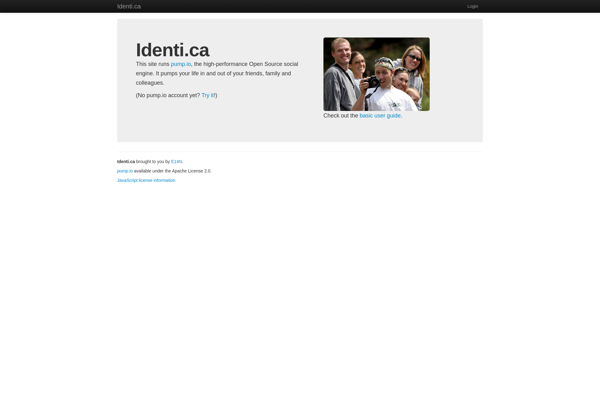StatusNet
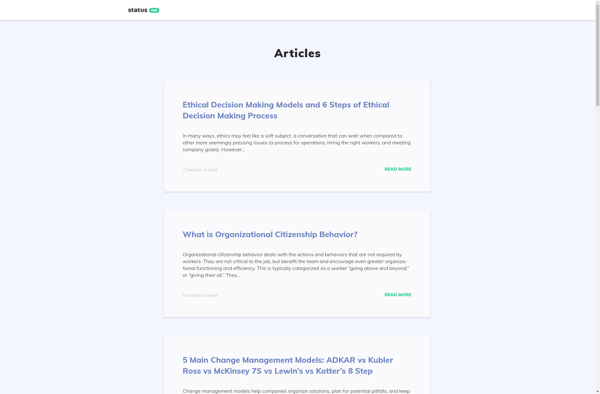
StatusNet: Open-Source Social Networking Platform
StatusNet is an open-source social networking platform that allows users to communicate in a Twitter-like flow. It enables creating profiles, posting short messages, following friends and discovering content.
What is StatusNet?
StatusNet is an open-source, decentralized social networking platform. It provides microblogging features similar to Twitter, allowing users to post short status updates, follow other users, reply, favorite and boost posts.
Some key features of StatusNet include:
- Open source - StatusNet is licensed under the GNU Affero General Public License, allowing anyone to use, modify or distribute the software freely.
- Federated - StatusNet instances can interconnect in a decentralized social network, where users of different instances can follow and interact with each other.
- Customizable - As open source software, StatusNet can be modified and extended. Features like themes, plugins, data exports can be added.
- Privacy - StatusNet provides greater privacy controls compared to some commercial social networks.
- Self-hosted - Organizations and individuals can host their own StatusNet server and retain control over their data.
Some real-world usages of StatusNet include corporate microblogging platforms to enable employee communication, and community discussion forums around specific interests or localities. A few major StatusNet instances are Quitter.se, GNUsocial.no and status.fsfe.org.
StatusNet Features
Features
- Microblogging platform
- Open source software
- Twitter-like status updates
- User profiles
- Content discovery
- Ability to follow other users
- Hashtagging and @mentions
- Media attachments to posts
- Group/list management
- 3rd party app integration
Pricing
- Open Source
- Self-Hosted
Pros
Cons
Official Links
Reviews & Ratings
Login to ReviewThe Best StatusNet Alternatives
Top Social & Communications and Microblogging and other similar apps like StatusNet
Socialite
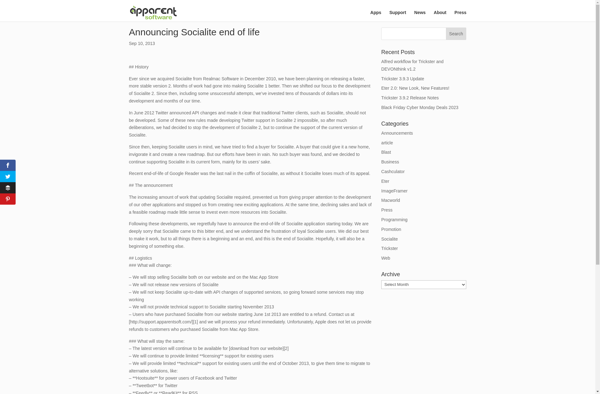
Gab
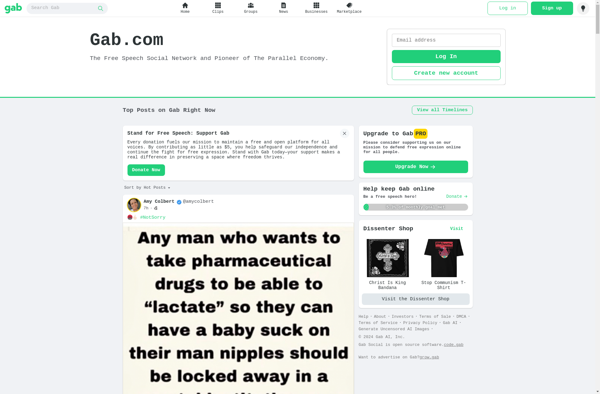
Mastodon

Diaspora

Friendica
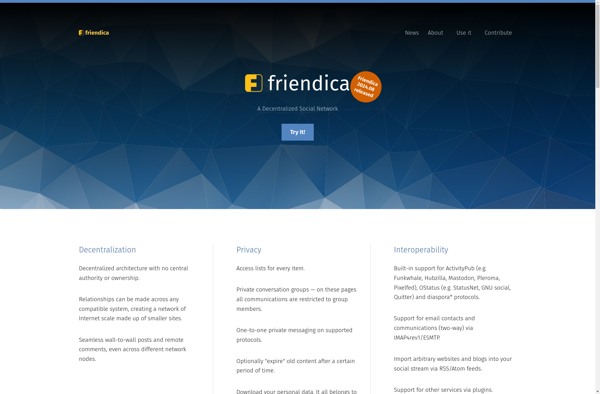
Libertree

Pleroma

Pelican
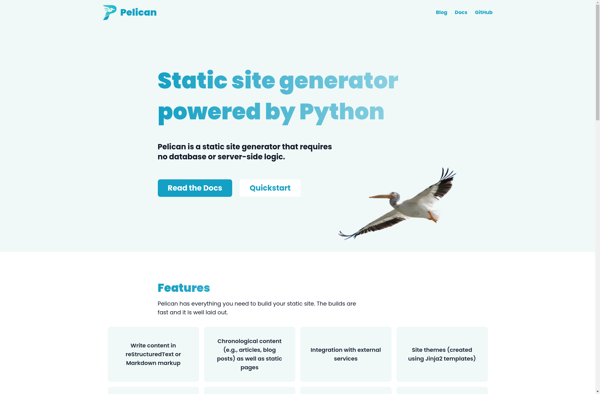
GNU social
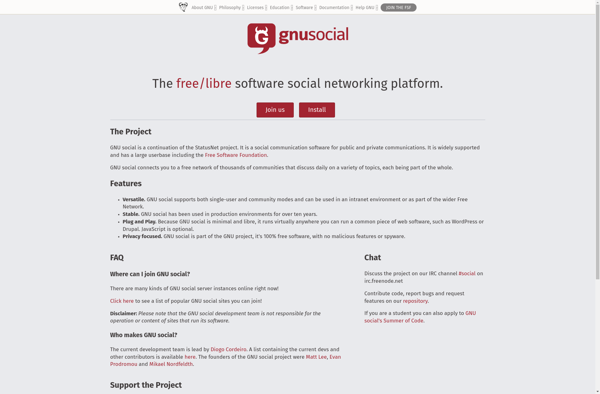
Identi.ca
